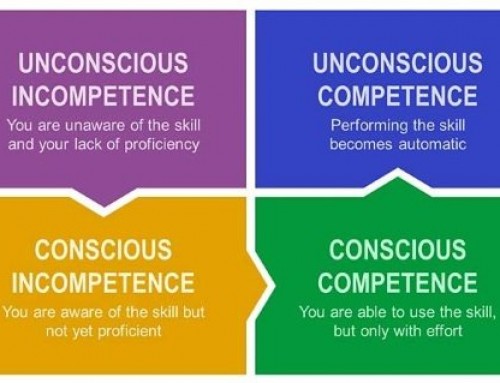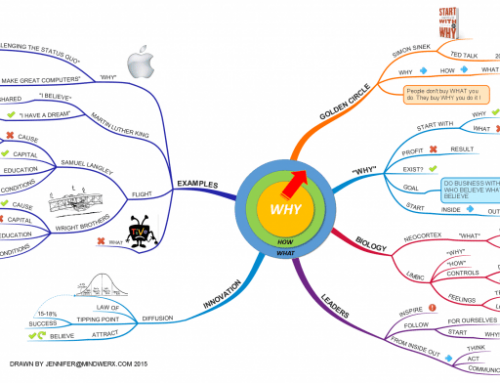A good friend asked me a while ago about how he could develop better conceptual thinking skills in some of his staff members. After happily giving him a bit of advice he turned what I’d given him into a simple general guide which he now shares with leadership groups in WA. I thought you might like it as well..
Conceptual thinking – the ability to:
- see the ‘big picture’ and better understanding of the context
- perceive and imagine, predict and hypothesize, and to conclude and reflect.
- understand how things are ‘associated and connected’ to:
- identify the systems at play and their interrelationships
- make informed predictions of the future
- plan to achieve the optimum outcome.
Conceptual thinkers are fascinated by concepts, ideas, relationships and philosophies. They ask lots of questions and deliberately think things through.
Developing Conceptual Thinking Skills
Asking someone to think differently without giving them some way of doing it is a real challenge. Simple tools such as drawings, flowcharts etc. guide thinking and assist in developing the habit of using visual tools which develop conceptual thinking.
The key is to invite use of Basic Visioning Tools and demonstrate use of them. This is more effective than just telling someone what to do. Set tasks using the tools you introduce e.g. create a flowchart of the major processes or visualise a customer engagement or Mind Map all aspects of a job and turn it into a project plan using the software.
For example tools such as:
| Process Flowcharts | Imagineering | Concept Maps |
| Inter-relationship DiGraphs | Life Scaping | Mind Maps |
Mind Maps in particular provide a holistic view, while maintaining connections, and allowing ideas, issues etc. to flow and develop creatively. And this is enhanced with Mind Mapping software.
To see what is possible get free trial versions of MindGenius (excellent business software that does more than just Mind Mapping), and iMindMap – the best Mind Mapping software around.
The book Mind Maps in Business also features iMindMaps in lots of different applications.
The key to developing conceptual thinking skills is to take action to learn and practice some basic techniques. Don’t just assume it is a natural ability that some have and some don’t.






Leave A Comment
You must be logged in to post a comment.